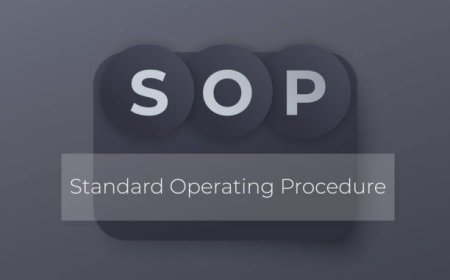Tax-Advantaged Education Funding: 529 Plans and Beyond for Business Families
Education is one of the most important investments parents can make for their children, but it can also be one of the most expensive

Education is one of the most important investments parents can make for their children, but it can also be one of the most expensive. For business families, the financial burden of education costs can be even more significant, especially when it comes to planning for multiple children, private schooling, or higher education. Fortunately, tax-advantaged education funding options, such as 529 plans, can help business families save efficiently for their children's education while also reducing their taxable income. In this article, we will explore the benefits of 529 plans and other education funding strategies for business families, as well as the importance of consulting with tax consultants in Saudi Arabia to maximize savings and reduce tax liabilities.
Understanding 529 Plans
A 529 plan is a tax-advantaged savings plan designed to encourage saving for future education costs. These plans are sponsored by states or educational institutions and offer families a way to save for both higher education expenses and, in some cases, K-12 tuition. The tax advantages make 529 plans an appealing option for business families looking to save for their children's future education costs.
One of the most attractive features of 529 plans is the tax-free growth on investments. The funds in a 529 plan grow without being taxed, and withdrawals used for qualified education expenses are also free from federal income tax. Qualified expenses typically include tuition, fees, books, supplies, and sometimes room and board for college or university students.
The Benefits of 529 Plans for Business Families
For business families, 529 plans can offer several distinct advantages, particularly when it comes to managing business and personal finances. Some key benefits of 529 plans for business families include:
-
Tax-Free Growth: As mentioned, the investments in a 529 plan grow without being taxed, making it an effective way to accumulate funds for future education expenses. This tax-free growth can significantly increase the value of your savings over time, especially if you start contributing early.
-
Flexible Use of Funds: While 529 plans are typically used for college or university expenses, they can also be used for certain K-12 expenses in some states. Additionally, 529 plans can be used for vocational and technical schools, providing even more options for education funding.
-
State Tax Benefits: Many states offer tax deductions or credits for contributions made to a 529 plan. For business families in these states, contributing to a 529 plan can result in immediate tax savings at the state level, in addition to the federal tax benefits.
-
Control Over the Funds: The account owner, typically the parent or guardian, retains control over the funds in the 529 plan. This gives families the flexibility to adjust the account or change the beneficiary, if necessary. It also means that the funds are not considered assets of the student when applying for financial aid, which can help reduce the impact on aid eligibility.
-
Estate Planning Benefits: For business owners, 529 plans can also play a role in estate planning. Contributions to a 529 plan are considered completed gifts for tax purposes, meaning they can help reduce the size of the estate while still benefiting the family. Business families looking to pass wealth onto future generations may find 529 plans a useful tool in their overall estate strategy.
Beyond 529 Plans: Other Education Funding Options
While 529 plans are an excellent option for education savings, there are other strategies that business families can explore to further enhance their education funding strategy. These options may be especially useful for families with high-income levels or those looking for additional ways to save for educational expenses.
1. Coverdell Education Savings Accounts (ESAs)
A Coverdell Education Savings Account (ESA) is another tax-advantaged savings account for education, similar to a 529 plan. While ESAs offer more flexibility in terms of how the funds are used, such as for elementary, secondary, and post-secondary education, they have some limitations compared to 529 plans. Contributions to an ESA are limited to $2,000 per beneficiary per year, and eligibility phases out at higher income levels.
Despite these limitations, Coverdell ESAs can be a valuable supplement to a 529 plan, especially for business families looking to fund K-12 education or seeking a more hands-on investment approach.
2. Custodial Accounts (UGMA/UTMA)
Custodial accounts, also known as UGMA (Uniform Gifts to Minors Act) or UTMA (Uniform Transfers to Minors Act) accounts, are another option for saving for education expenses. Unlike 529 plans or ESAs, custodial accounts allow for broader use of the funds, including for education, but also for other expenses, such as a first car or a home down payment.
While custodial accounts do not offer the same tax advantages as 529 plans or ESAs, they can be useful for families who want more flexibility in how the funds are spent. However, custodial accounts do have a downside: once the child reaches the age of majority (usually 18 or 21, depending on the state), they gain control over the account and can use the funds however they wish.
3. Roth IRAs
A Roth IRA is typically used for retirement savings, but it can also be a useful tool for saving for education. Contributions to a Roth IRA are made with after-tax dollars, but qualified withdrawals, including for education expenses, are tax-free. While Roth IRAs are not specifically designed for education savings, business families may find them helpful in diversifying their education funding strategy.
One benefit of using a Roth IRA for education expenses is that, unlike 529 plans, there are no restrictions on how the funds can be used. Additionally, if the funds are not needed for education, they can be used for retirement, providing more flexibility in your overall financial planning.
4. Business-Specific Education Funding
For business families, there may also be opportunities to fund education costs through the business itself. For example, some business owners may be able to offer scholarships to their children or employees' children through a corporate scholarship program. Alternatively, certain types of insurance policies or retirement plans can also be used to fund education expenses in a tax-efficient manner.
The Importance of Consulting with Tax Consultants in Saudi Arabia
For business families, the complexity of tax laws, especially when it comes to international considerations, can make education funding strategies more challenging. In countries like Saudi Arabia, where the tax structure is unique and different from many Western nations, it’s essential to work with tax consultants in Saudi Arabia who understand both local regulations and international tax laws. They can provide valuable guidance on how to maximize tax advantages and develop a strategy that aligns with your long-term financial goals.
Tax consultants in Saudi Arabia can help you navigate the complexities of saving for education in a tax-efficient way, ensuring that you take full advantage of available tax breaks, while also helping you avoid potential pitfalls related to taxation on gifts, estate planning, and business-related education funding.
Conclusion
For business families, planning for education costs is a vital part of long-term financial planning. Tax-advantaged accounts such as 529 plans, Coverdell ESAs, and custodial accounts offer excellent opportunities to save efficiently for future educational expenses. Additionally, business families can explore other strategies, including Roth IRAs and business-specific funding options, to further optimize their education funding plan.
Given the complexity of the tax laws in Saudi Arabia and other countries, working with experienced tax consultants in Saudi Arabia can help ensure that you are taking advantage of all available opportunities to minimize tax liabilities while effectively funding your children's education. By planning ahead and utilizing the right tools, business families can secure a bright future for their children while preserving their wealth.
References:
https://www.headhonchos.net/?p=35750&preview=true

























































































